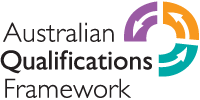This unit describes the skills and knowledge required to analyse and lead organisational transformation and learning for strategic outcomes. It covers leading transformational practices, cultivating collaborative practices, completing ongoing professional development and providing strategic leadership in a dynamic context.
The unit applies to those who use cognitive and creative skills to review, critically analyse, consolidate and synthesise knowledge, in order to generate ideas and provide solutions to complex problems. They use communication skills to demonstrate their understanding of theoretical concepts and to transfer knowledge and ideas to others.
No licensing, legislative or certification requirements apply to this unit at the time of publication.





